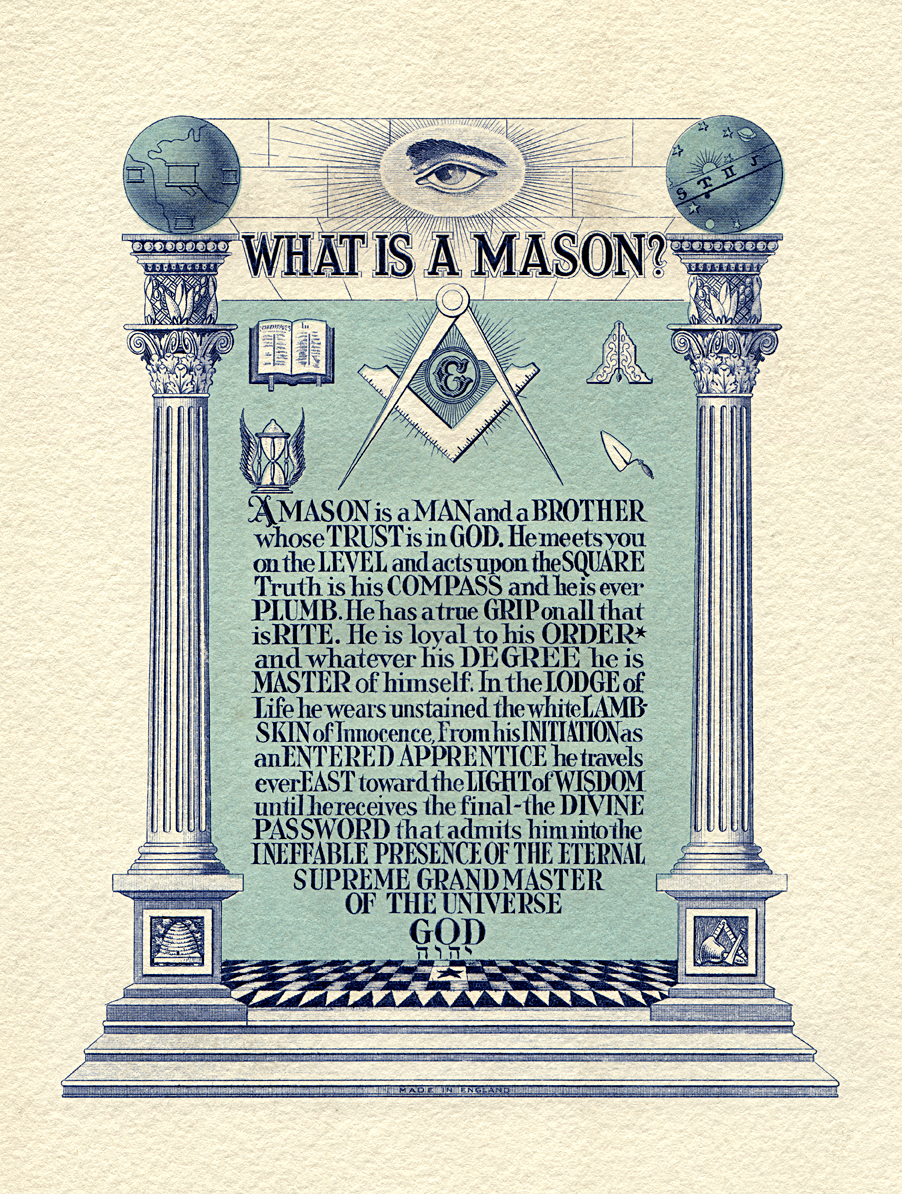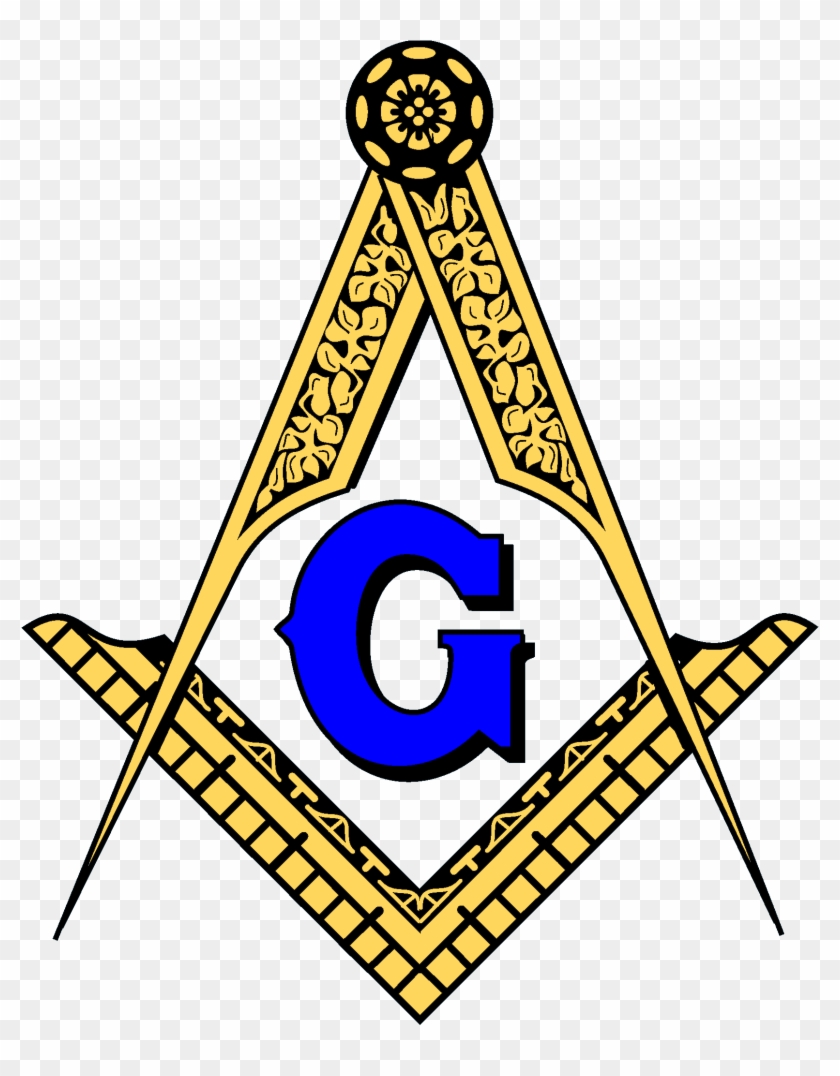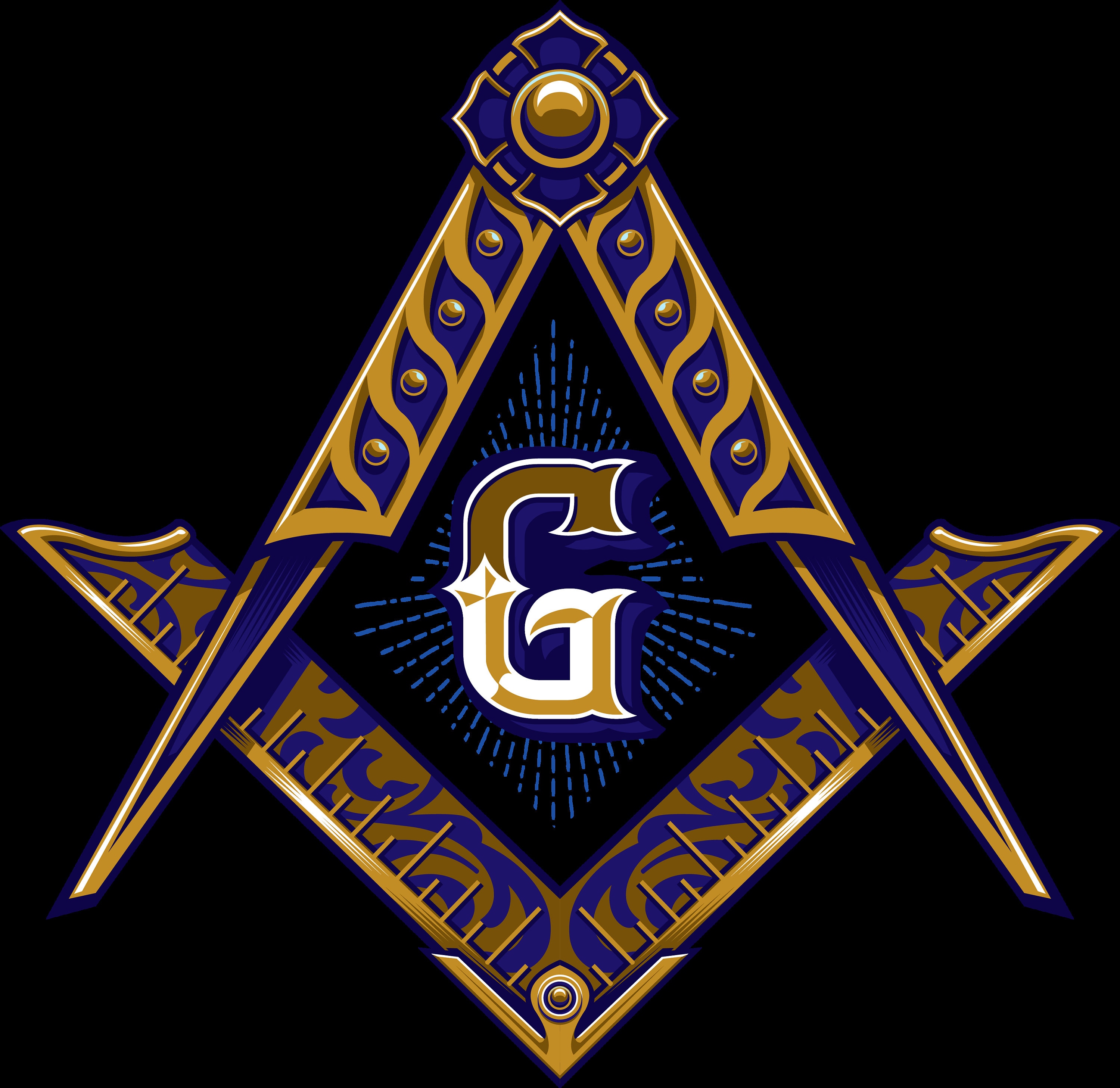Understanding Masonry: The Path A "Mason Cibrian" Might Walk
Have you ever heard the term "Mason" and wondered what it truly means? Perhaps you've come across the name "Mason Cibrian" and pondered its significance within this ancient context. While "Mason Cibrian" isn't a specific individual we're focusing on, the name serves as a compelling placeholder to explore the rich history, values, and global impact of Freemasonry—the world's oldest and largest fraternal organization. This article delves deep into what it means to be a Mason, drawing insights from historical facts and common understandings of this often-misunderstood society. We will unpack the core tenets, global presence, and the journey members undertake, providing clarity on a fraternity that has shaped communities for centuries.
Freemasonry, a term often shrouded in mystery and speculation, is fundamentally a society of men united by a common set of values and beliefs. It is an organization built on brotherhood, moral development, and charitable work, extending its influence across continents. Through this exploration, we aim to shed light on what makes this organization enduring and how individuals, like a hypothetical "Mason Cibrian," become part of its storied legacy.
Table of Contents
- What is Freemasonry? Unpacking the Ancient Fraternity
- The Global Reach of Masons: Where Freemasonry Thrives
- Who Can Become a Mason? The Criteria for Membership
- The Meaning of "Mason": From Stonecutters to Brotherhood
- The Masonic Lodge and Degrees: A Journey of Development
- Common Questions About Freemasonry Answered
- Values and Beliefs That Bind Freemasons
- The Legacy of Freemasonry and Its Members, Like a "Mason Cibrian"
What is Freemasonry? Unpacking the Ancient Fraternity
Freemasonry is a fraternal organization that has been around for centuries. It is a society of men who are united by a common set of values and beliefs. Masons (also known as Freemasons) belong to the oldest and largest fraternal organization in the world. It unites men of good character who, though of different religious, ethnic, or social backgrounds, share a belief in a Supreme Being. This fundamental belief is a cornerstone of the organization, allowing men from diverse walks of life to come together in unity. The organization is known for its emphasis on moral and ethical development, encouraging its members to be better men, fathers, husbands, and citizens. It's not a religion, nor does it seek to replace one, but rather complements a member's existing faith. Freemasons, known popularly for their white aprons, arcane symbols, and secret handshake, are members of the world's oldest fraternal organization. Modern Freemasonry broadly consists of three main traditions, each contributing to the rich tapestry of its global presence.The Global Reach of Masons: Where Freemasonry Thrives
The influence and presence of Freemasonry are truly global. Estimates of the worldwide membership of Freemasonry are substantial, with a significant concentration in particular regions. Freemasonry remains most popular in the British Isles and countries that were originally within the British Empire. This historical connection speaks volumes about its spread and enduring legacy. Today, there are more than two million Freemasons in North America alone, highlighting its strong foothold in the Western world. This widespread presence means that the principles and values of Freemasonry have touched countless lives and contributed to communities across diverse cultures and geographies. The global network of Masons fosters a sense of universal brotherhood, where members can find camaraderie and support regardless of their geographical location. A "Mason Cibrian," if he were a member, would find himself part of this vast, interconnected network.Who Can Become a Mason? The Criteria for Membership
The path to becoming a Mason is straightforward, yet it requires adherence to specific, foundational principles. To become a Mason, one only needs to be a man of good character and to believe in a God, whatever form that may take for each individual. This inclusivity regarding religious belief, as long as there is a belief in a Supreme Being, is one of the defining characteristics of the fraternity. It means that men of various faiths—Christian, Jewish, Muslim, Hindu, and others—can stand together as brothers. Beyond this, the emphasis is placed on the individual's moral compass and integrity. The organization seeks to unite men who are committed to personal growth, ethical conduct, and contributing positively to society. It is not about social status or wealth, but about the quality of one's character. The journey to becoming a Mason, like a "Mason Cibrian" might embark upon, begins with a genuine desire to learn, grow, and contribute to the brotherhood.The Meaning of "Mason": From Stonecutters to Brotherhood
The very word "Mason" carries a profound historical weight that underpins the fraternity's symbolic teachings. The meaning of Mason is a skilled worker who builds by laying units of substantial material (such as stone or brick). This literal definition points to the historical roots of the organization.Historical Roots of the Term
Freemasonry evolved from the guilds of stonemasons and cathedral builders of the Middle Ages. These skilled craftsmen, who worked with stone, possessed specialized knowledge and techniques that were often closely guarded. A stonemason (= person who cuts stone) was a master of his craft, capable of transforming raw materials into magnificent structures. The tools of the trade—the square, compass, level, and plumb rule—became powerful symbols within the fraternity, representing moral lessons and principles of life. The transition from operative (working) masons to speculative (philosophical) masons marked the beginning of modern Freemasonry, where the building of character became as important as the building of cathedrals.Modern Interpretation of Masonry
Today, the term "Mason" within the context of Freemasonry refers to a member of this fraternal organization. While they no longer literally build structures of stone, they are symbolically engaged in "building" character, community, and a better world. What binds Freemasons together is our shared commitment to moral improvement, charity, and fellowship. The principles of brotherly love, relief, and truth are central to their teachings. So, when we refer to a "Mason Cibrian" in this context, we are thinking of an individual who embodies these ideals, dedicating himself to the betterment of himself and society through the tenets of Freemasonry.The Masonic Lodge and Degrees: A Journey of Development
The core of Masonic activity takes place within the lodge, and a member's journey through Freemasonry is marked by a progression through various degrees. Learn about Freemasonry, the history of the fraternity, what happens in a Masonic lodge, and how to become a Mason.Inside a Masonic Lodge
A Masonic lodge is not a building, but rather a group of Masons meeting together. While many lodges own their own buildings, the term "lodge" refers to the collective body of members. These meetings are where the work of Freemasonry is conducted. This includes conducting ceremonies for new members, discussing lodge business, organizing charitable activities, and fostering fellowship among brothers. The atmosphere within a lodge is one of respect, learning, and camaraderie. It's a place where men can set aside their worldly differences and come together on a level playing field, united by their shared values. For a "Mason Cibrian," the lodge would be a central point for his Masonic life, a place of learning and brotherhood.Understanding the Degrees
The journey of a Freemason is structured through a series of degrees. Each degree represents a different stage in the member's development. These degrees are symbolic lessons, often presented as allegorical plays, that impart moral and ethical teachings using the symbolism of the ancient stonemason's craft. Each degree represents a different stage in the member's development, building upon the lessons learned in the previous one. The three primary degrees in Craft (or Blue Lodge) Freemasonry are:- **Entered Apprentice:** The first step, where a candidate is introduced to the basic principles of Freemasonry.
- **Fellowcraft:** The second degree, focusing on the pursuit of knowledge and the importance of education.
- **Master Mason:** The third and highest degree in Craft Masonry, symbolizing the completion of the operative work and emphasizing the importance of truth, integrity, and the immortality of the soul.
Common Questions About Freemasonry Answered
Freemasonry has long been a subject of public fascination, leading to many questions. Here are some of the most common questions about Freemasonry, answered by Macoy Publishing's classic authors like Mackey, Macoy, Hall, Haywood, Coil, Newton, and others. These authoritative sources provide clarity on various aspects of the fraternity, from its origins to its practices. Questions often revolve around its "secrets," its relationship with religion, and its charitable endeavors. The "secrets" of Freemasonry are primarily the modes of recognition (like the handshake) and the specific rituals of the degrees, which are designed to be known only to members to preserve their symbolic impact. The fraternity is not a secret society, but a society with secrets. It operates openly, with lodges often listed publicly and members proud to identify themselves. The answers provided by these esteemed authors help dispel myths and offer a genuine understanding of what Freemasonry truly is.Values and Beliefs That Bind Freemasons
Freemasonry is a fraternal organization of men who believe in brotherhood and helping others. Its members are known as Freemasons (in full, Ancient Free and Accepted Masons, or simply Masons). The core values that unite them are universal and timeless. These include:- **Brotherly Love:** Promoting kindness, understanding, and mutual respect among all men, especially within the fraternity.
- **Relief:** Practicing charity and providing aid to those in need, both within the Masonic community and the wider world. Masonic charities contribute millions of dollars annually to various causes, from hospitals to educational scholarships.
- **Truth:** Upholding honesty, integrity, and the pursuit of knowledge. Masons are encouraged to seek truth in all aspects of their lives and to live honorably.
The Legacy of Freemasonry and Its Members, Like a "Mason Cibrian"
The enduring legacy of Freemasonry lies in its continuous commitment to moral and personal development, charity, and brotherhood. For centuries, Masons have contributed significantly to society, often anonymously, through their charitable works and their emphasis on good citizenship. The organization has attracted men from all walks of life, including many prominent figures in history, who have found value in its teachings and fellowship. The principles taught within the lodge encourage members to be active, positive forces in their communities, embodying the ideals of integrity and service. The journey of a Mason, whether it be a historical figure or a contemporary individual like a hypothetical "Mason Cibrian," is one of continuous self-improvement and dedication to a higher purpose. It's a legacy built on the quiet, consistent efforts of millions of men striving to live by a common, noble code.Conclusion
In exploring the world of Freemasonry, we've journeyed through its ancient origins, global reach, and the profound values that define its members. While "Mason Cibrian" served as a conceptual guide, the true focus has been on understanding what it means to be a Mason within this venerable fraternity. From its roots in stonemason guilds to its modern interpretation as a society dedicated to brotherhood, charity, and moral development, Freemasonry continues to be a significant force for good in the world. It is an organization where men of good character, united by a belief in a Supreme Being, come together to build not just themselves, but also their communities. We hope this article has demystified some of the common misconceptions surrounding Freemasonry and provided a clearer picture of its purpose and impact. If you found this exploration insightful, we encourage you to share this article with others who might be curious about this fascinating organization. What are your thoughts on Freemasonry? Share your comments below, and feel free to explore other related articles on our site for more insights into historical organizations and their legacies.- Rich Areas In Dallas
- Necati Arabac%C3%A4
- Sasha Prasad
- Project Escape Room Roblox School
- Discovering The Legacy Of Desi Arnaz Jr

What Is A Mason

15 Freemason Vector Mason Symbol For Free Download - Masonic Square And

Freemason Coin for sale | Only 2 left at -65%